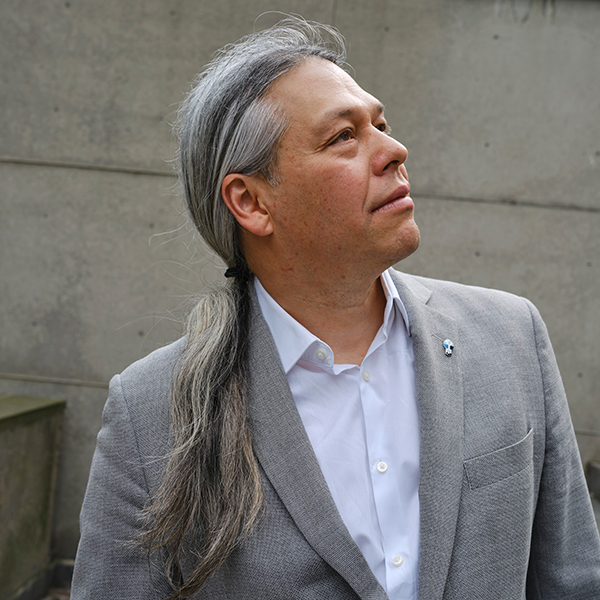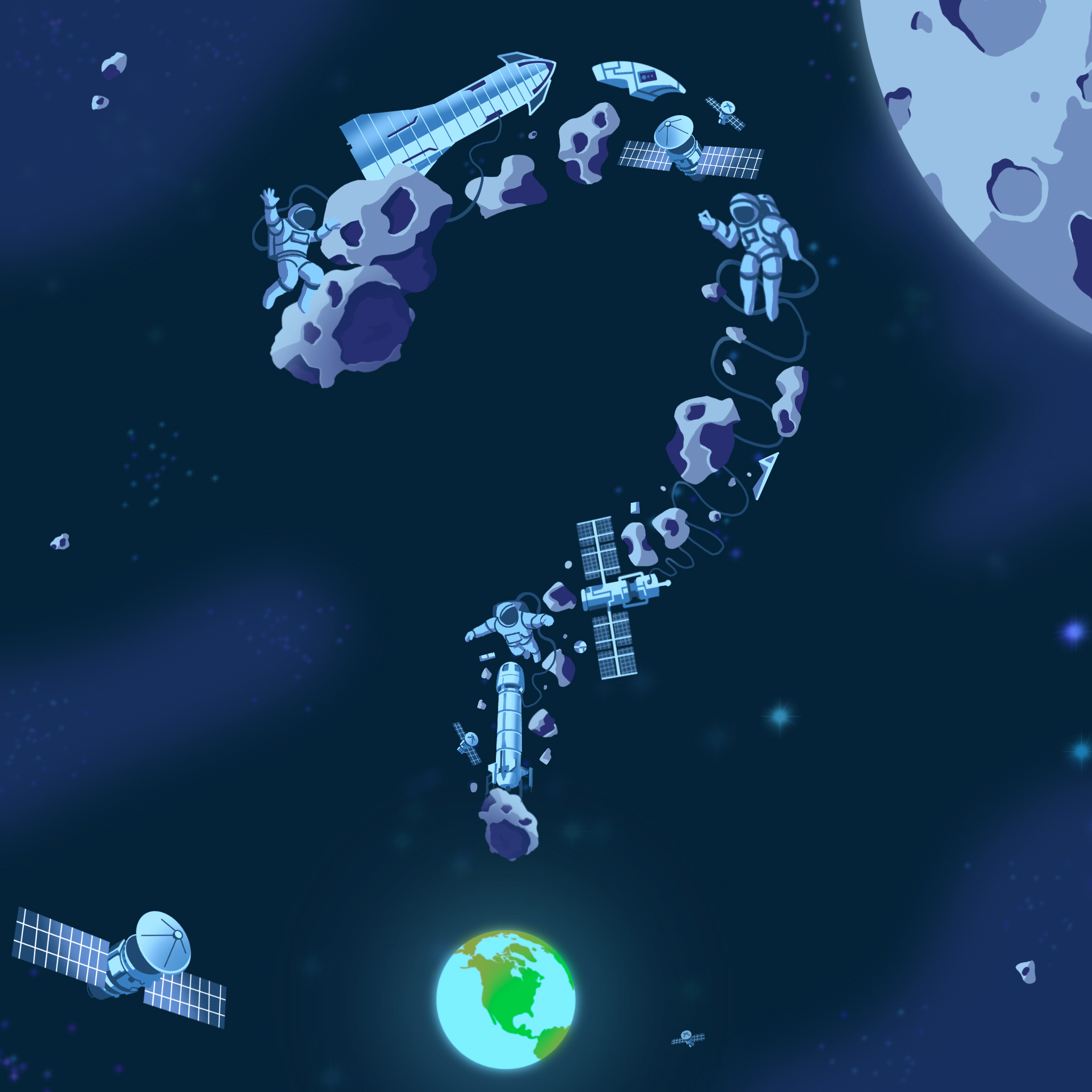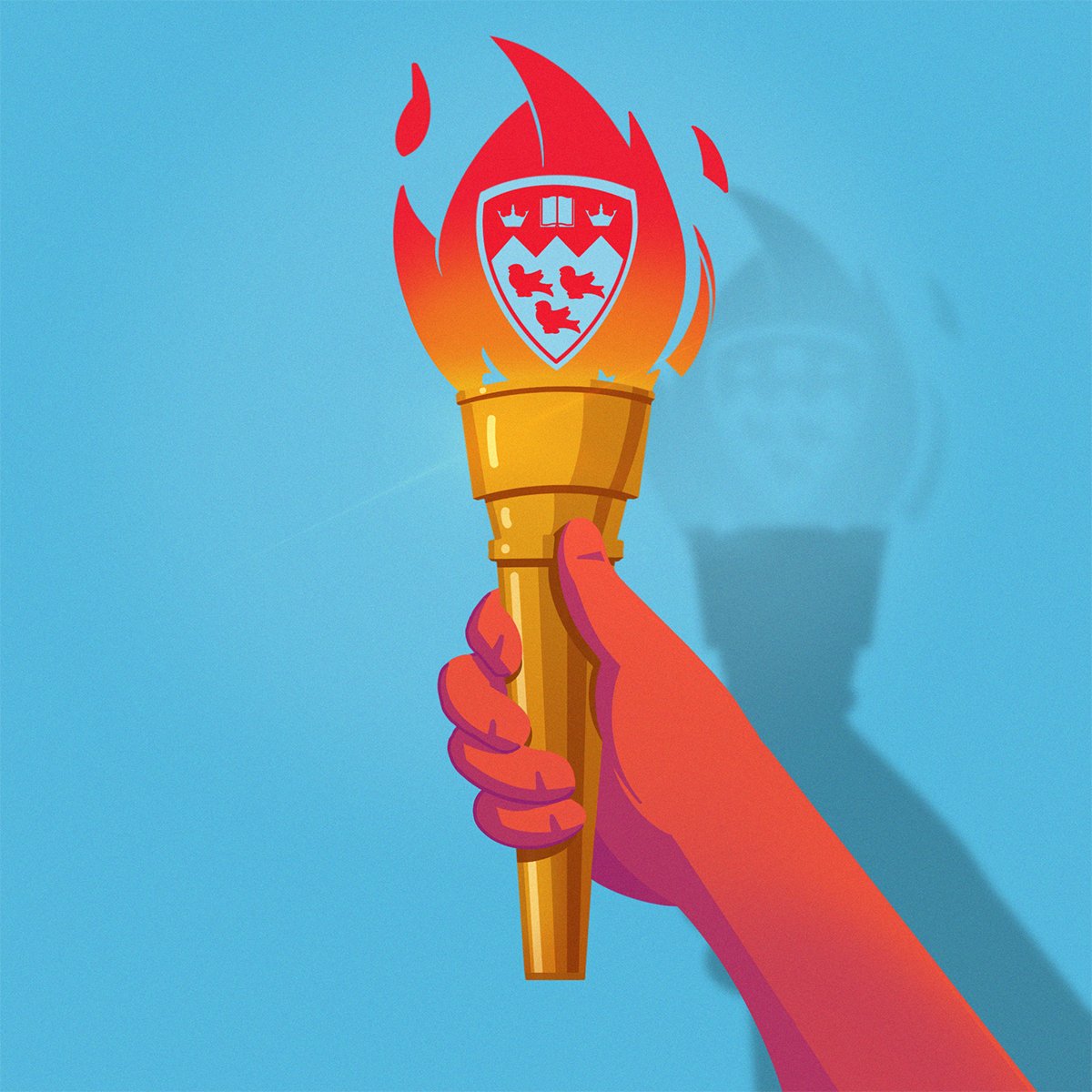Most PhD candidates don’t spend a year shunning their topic of doctoral study. But that’s sort of what Aron Lee Rosenberg, MA’19, PhD’23, did when he decided to spend an entire year offline to better understand the impact of the internet. (His doctoral degree in education focused on how to foster critical digital literacy practices.)
Rosenberg’s new book Jacking Out borrows heavily from the personal journal he kept during that time.
The diary-entry style book reads like a snapshot of a year in the life of a sociable young queer graduate student living in the Plateau. But with that year being 2020, it’s a portrait of managing unexpected change in uncertain times.
Rosenberg deliberately doesn’t mention Covid in the book. We all know it happened. And though the pandemic accelerated many online trends, it wasn’t the cause.
He writes about how he prepped for his offline year, acquiring a flip phone and setting up text messaging through SMS (phone) networks instead of MMS internet-based platforms. He ordered the Yellow Pages and White Pages and made a lot of phone calls. He received bills in the mail and paid them by cheque. He eschewed email and started writing letters the old-fashioned way.
Registering for his classes proved to be surprisingly difficult without using the internet. Rosenberg now better appreciates the challenges facing students living up north who face internet problems regularly.
Living without a smartphone and steering clear of the internet posed other more mundane challenges. Getting a movie ticket to see a new Adam Sandler film was unexpectedly tough (he couldn’t book the ticket online and once he arrived at the theatre, the showing was sold out). He would make himself look away when friends shared pictures of their latest love interests on their devices. He couldn’t help but wonder about all the things he was missing out on.
On the other hand, he believes that avoiding doomscrolling during that year was almost certainly beneficial for his mental health. And he has no regrets whatsoever about the fact that he was cheerfully oblivious of the hoopla around “Baby Shark.”
More than a memoir about his year offline, Jacking Out is also a call for responsible and conscientious digital usage. Rosenberg brings attention to the hidden social and environmental problems of our digitization.
In the 2020 CBC Massey Lecture (which Rosenberg listened to on the radio), tech expert Ron Deibert claimed that sending 65 emails uses the same amount of energy as driving a car one kilometre. A single email might have a tiny environmental impact, but put them all together and they definitely add up.
Digital technologies have their own environmental footprint. “The fact that it’s hard to measure, the fact that [its impact] is obscured, is serving … the tech industry in a way we don’t think about,” says Rosenberg.
For instance, we all assume that using PowerPoint is “better” than paper handouts, but is it, given Canada’s sustainable paper industry, which also has fair labour standards? Even the lingo surrounding digital technologies renders our understanding vague. We refer to a nebulous “cloud” for what are actually massive data server farms that require huge amounts of electricity.
We rarely think about the mining, manufacturing or disposal of the materials that make up our digital devices, Rosenberg says. We avoid considering the dangerous and exploitative working conditions that some in the Global South have to deal with so that those devices can be built. Who wants to think about child labour when looking at memes?
Content moderation can be deeply traumatizing for the people who do it, points out Rosenberg. Once companies realized the terrible mental health toll on employees who screened videos reported for violence, the work was often outsourced to countries with lax labour standards.
Even doing research digitally can be slippery and isn’t necessarily neutral. In the book, Rosenberg writes of a friend helping a pregnant teen look for resources online and how they each gleaned wildly different results. Search engine algorithms keep track of all of our past clicks, and that affects what they push to the top for each of us.
Rosenberg, now a faculty lecturer in McGill’s Department of Integrated Studies in Education, teaches a course on digital media and learning. In it, he demonstrates how Google results vary by assigning students to ask the same question (one prompt: where to find free food).
“The world we’re preparing students for is a hyper digital world where they’re going to be using their devices in ways that we’ll have to support them,” he says. “Social media can lead to feeling you know people in a way that you don’t and trusting people as experts when they’re not.”
Rosenberg says it is important to offer “education that supports young people to have media literacy” but that isn’t enough. He sees a role for regulation in forcing social media giants to be more responsible about the spread of particularly dangerous forms of misinformation. “[The tech companies] will still make tons of money.”
Would he recommend that others do what he did and take a full year off from the digital world? No. In the book, talking to a group of students, he suggests something more modest – spending a day a week offline, maybe in concert with your friends.
“The year offline made me rethink and recalibrate my relationships,” Rosenberg says. He used to be the kind of guy cuing up his next social event by text when in the middle of a hangout. Now he makes more careful distinctions between social obligations and “intentional slow friendships that I really nurture and value.”
How did Rosenberg’s year offline end? On January 1, 2021, he opened his email to find 2,836 messages waiting for him.
He closed the laptop and went out for a walk.


